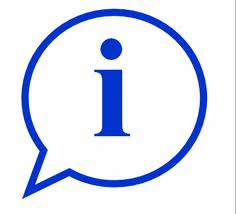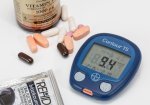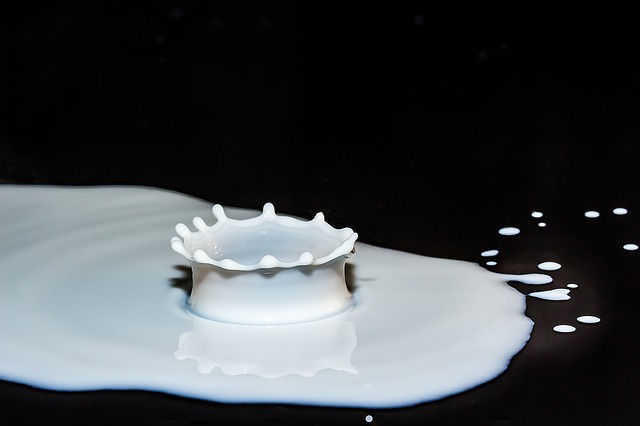Resistant Hypertension Overview
Covering resistant hypertension definition, prevalence, guidelines and treatment

Resistant hypertension definition
Resistant high blood pressure or hypertension is defined as uncontrolled blood pressure on three or more hypertension medications including a diuretic for high blood pressure. The classic definition of hypertension which is resistant to treatment is a failure to achieve goal blood pressure while receiving a three drug regimen that includes a diuretic. Blood pressure which is under control but requires more than or equal to 4 drugs to do so is also considered resistant to treatment.
Patients with resistant high blood pressure will show no signs of getting their blood pressure in control despite repeated treatment regimen.
Resistant hypertension prevalence
The prevalence of resistant high blood pressure is thought to be in the region of 30 to 40 percent of all high blood pressure patients. The actual prevalence of resistant hypertension is unknown but recent credible studies have shown that its prevalence may actually be higher than previously thought.
The American Heart association (AHA) links resistant hypertension prevalence to population becoming older and heavier. This opinion points to the importance of obesity in understanding resistant high blood pressure prevalence.
Resistant high blood pressure overview
Resistant high blood pressure in itself is not an easy condition to diagnose. Good blood pressure equipment and a good blood pressure measurement technique will be required to solidly confirm persistently elevated blood pressure levels despite ongoing treatment.
When doctors are investigating resistant high blood pressure, numerous factors are considered categorized as patient or doctor related, drug related or secondary causes. A patient may play a important role in contributing to resistant high blood pressure. Patient noncompliance with treatment schedules as well as use of drugs for other ailments that interact with high blood pressure medications is known to lead to resistant high blood pressure. Up to 80% of patients are thought to be non-compliant in taking hypertension medications.
Of particular importance on the patient's side is obesity and diet. Obesity is a common feature of resistant hypertension and therefore weight loss becomes an important consideration in defeating resistant high blood pressure. A patient diagnosed with high blood pressure and on drug treatment may cause drug ineffectiveness by continuing on a diet that promotes blood pressure elevation.
In particular, sodium ingestion via salt consumption in various foods opposes blood pressure treatment. The medical association between salt and high blood pressure is of paramount importance to doctors in this case. This will even include other nutritional supplements such as glucosamine sulfate which contains sodium. For this reason the link between glucosamine and blood pressure is also of importance to doctors.
Doctor related factors in considering resistant high blood pressure will include lack of adequate patient education as it pertains changes the patient ought to aggressively implement in light of their high blood pressure diagnosis and treatment. This education will include explaining to the patient the importance and effect of certain dietary approaches and lifestyle modifications that will need to be followed if treatment is to be effective and blood pressure goals achieved.
For instance patients will need to be educated on the association between appropriate physical exercise and blood pressure and the effects of alcohol and tobacco on high blood pressure. Resistant high blood pressure may also occur on account of the physician failing to carry out accurate clinical diagnosis of the condition. For example, even though it's not known why, in a certain group of people blood pressure elevation occurs naturally as the blood pressure cuff is inflating.
Blood pressure elevation may also occur because of the use of a tight fitting cuff which distorts blood pressure results. The solution and recommendation in this particular case is to be knowing how to measure blood pressure by both the patient at home, in the case of home blood pressure monitoring, and the medical professional at the doctor's office.
Resistant high blood pressure may also be as a result of the physician prescribing an inappropriate drug therapy. In this case hypertension guidelines are important in helping physicians prescribe correct hypertension treatment in the context of known blood pressure ranges and blood pressure numbers.
According to the definition of resistant high blood pressure in the opening paragraph of this article, doctors must have used at least three drug therapies one of which ought to be a diuretic for high blood pressure to be considered resistant. Secondary causes of resistant high blood pressure often occur in older patients who are above 50 years old who might have renovascular disease, for example. Renovascular disease is a progressive condition that causes narrowing or blockage of the renal arteries or veins. This will have the effect of maintaining elevated blood pressure regardless of high blood pressure treatment.
Resistant hypertension guidelines
The American Heart Association (AHA) recently gave new guidelines for resistant hypertension acknowledging that the area of resistant high blood pressure has not been widely studied. Much knowledge is needed to better pinpoint and treat patients with resistant high blood pressure.
Guidelines for resistant high blood pressure notes that medication noncompliance and white coat hypertension must be eliminated when diagnosing resistant high blood pressure. Doctors and patients alike should consider the following when dealing with resistant high blood pressure;
- Excessive Weight/Obesity
- Alcohol use
- Medications - withdraw interfering drugs
- Use multi-drug regimens
- Dose timing- at least one of the drugs to be taken at bedtime
- Adherence - encourage adherence in patients and simplify prescriptions as much as possible.
Resistant hypertension treatment
Resistant hypertension treatment heavily relies on following the set guidelines as discussed in the foregoing part of the article. Treatment will start by careful elimination of the various factors highlighted above which are known to lead to resistant high blood pressure conclusions.
The use of multiple regimen of drugs inclusive of a diuretic has been shown to be effective in dealing with resistant high blood pressure. Perhaps treatment will improve as more studies are carried out on the conditions as currently there is little information available in as far as the condition prevalence and prognosis is concerned.
Where secondary causes exist such as renovascular disease, kidney disease, liver and heart disease; these will need to be addressed first in order to get any meaningful response to treatment. These in themselves are underlying conditions that cause blood pressure treatment non-responsive.

Doctors recommend home blood pressure monitoring for all individuals. Best monitors are those that are calibrated and clinically tested by leading hypertension institutions in Europe and the United States. As a bonus its good to go for one that also detects irregular heartbeat and morning hypertension. Should you think its time to replace or invest in a new blood pressure monitor we give thumbs up to the Omron range namely the Omron Elite 7300W , the Omron HEM-711AC , the Omron HEM-780 and the Omron HEM-790IT among others.

Return to Hypertension Causes from Resistant Hypertension
Return to Hypertension Home from Resistant Hypertension
Disclaimer
Information contained on this website is not meant to replace your doctor's advice.
(c) All Rights Reserved. 2010-2018











